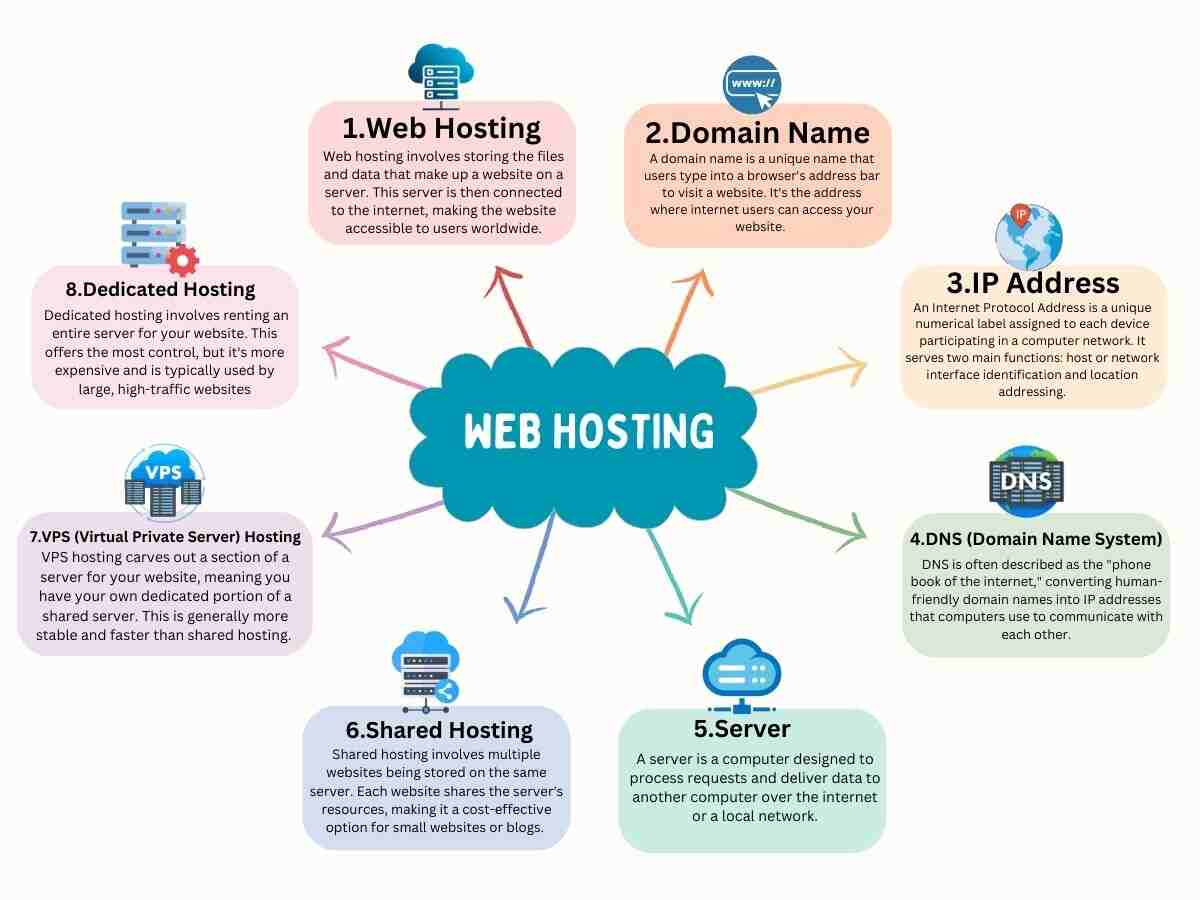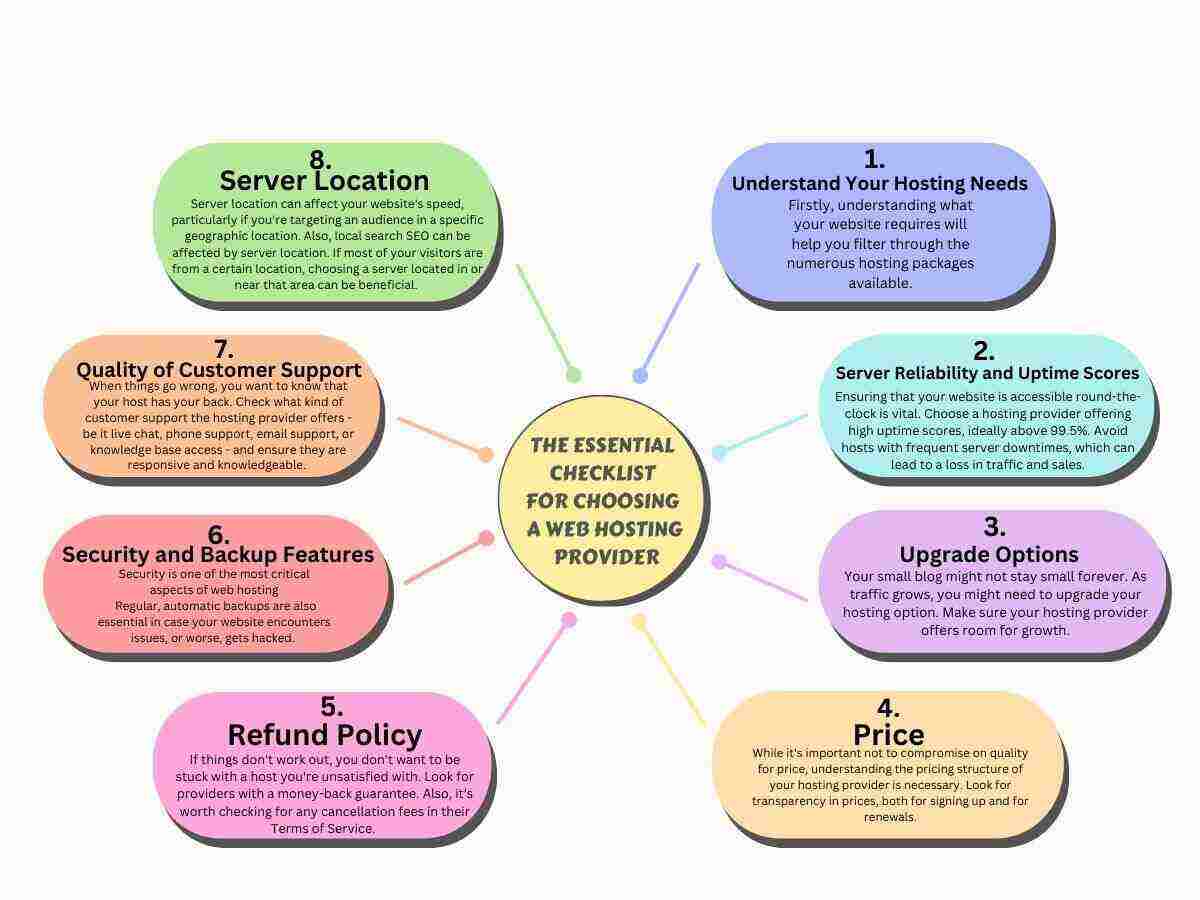
Understanding Web Hosting: Common Terms and Concepts Explained
Understanding web hosting services can sometimes seem like trying to decipher a new language. However, it’s an essential part of maintaining a website on the internet. In this article, let’s demystify some common web hosting services terms and concepts.
1. Web Hosting services
Web hosting services involves storing the files and data that make up a website on a server. This server is then connect to the internet. Making the website accessible to users worldwide.
2. Domain Name
A domain name is a unique name, that users type into a browser’s address bar to visit a website. It’s the address where internet users can access your website.
3. IP Address
An Internet Protocol Address is a unique numerical label assign to each device participating in a computer network. It serves two main functions: host or network interface identification and location addressing.
4. DNS (Domain Name System)
DNS is often describe as the “phone book of the internet,” converting human-friendly domain names into IP addresses that computers use to communicate with each other.
5. Server
A server is a computer designs to process requests and deliver data to another computer over the internet or a local network.
6. Shared Hosting services
Shared hosting services involves multiple websites being stored on the same server. Each website shares the server’s resources, making it a cost-effective option for small websites or blogs.
7. VPS (Virtual Private Server) Hosting
VPS hosting services carves out a section of a server for your website, meaning you have your own dedicated portion of a shared server. This is generally more stable and faster than shared hosting.
8. Dedicated Hosting
Dedicated hosting involves renting an entire server for your website. This offers the most control, but it’s more expensive and is typically used by large, high-traffic websites.
9. Cloud Hosting
Cloud hosting uses a network of servers to host a website, distributing the load across multiple servers. It’s scalable and often used for larger websites that need high performance and uptime.
10. Bandwidth
Bandwidth refers to the amount of data that the server will allow your website to send in a specific time period. High-bandwidth sites can accommodate more traffic.
11. SSL (Secure Sockets Layer)
Secure Sockets Layer is a security protocol that encrypts data transfers between your website and your visitors, keeping it secure from potential threats. SSL is essential for collecting sensitive information like credit card numbers.
12. Uptime
Uptime refers to the time that your website is accessible and running smoothly. It’s usually given as a percentage, with 100% signifying a website is always accessible.
13. CDN (Content Delivery Network)
A CDN is a network of globally distributed servers that deliver content to users based on their geographic location, the origin of the webpage and a content delivery server.







